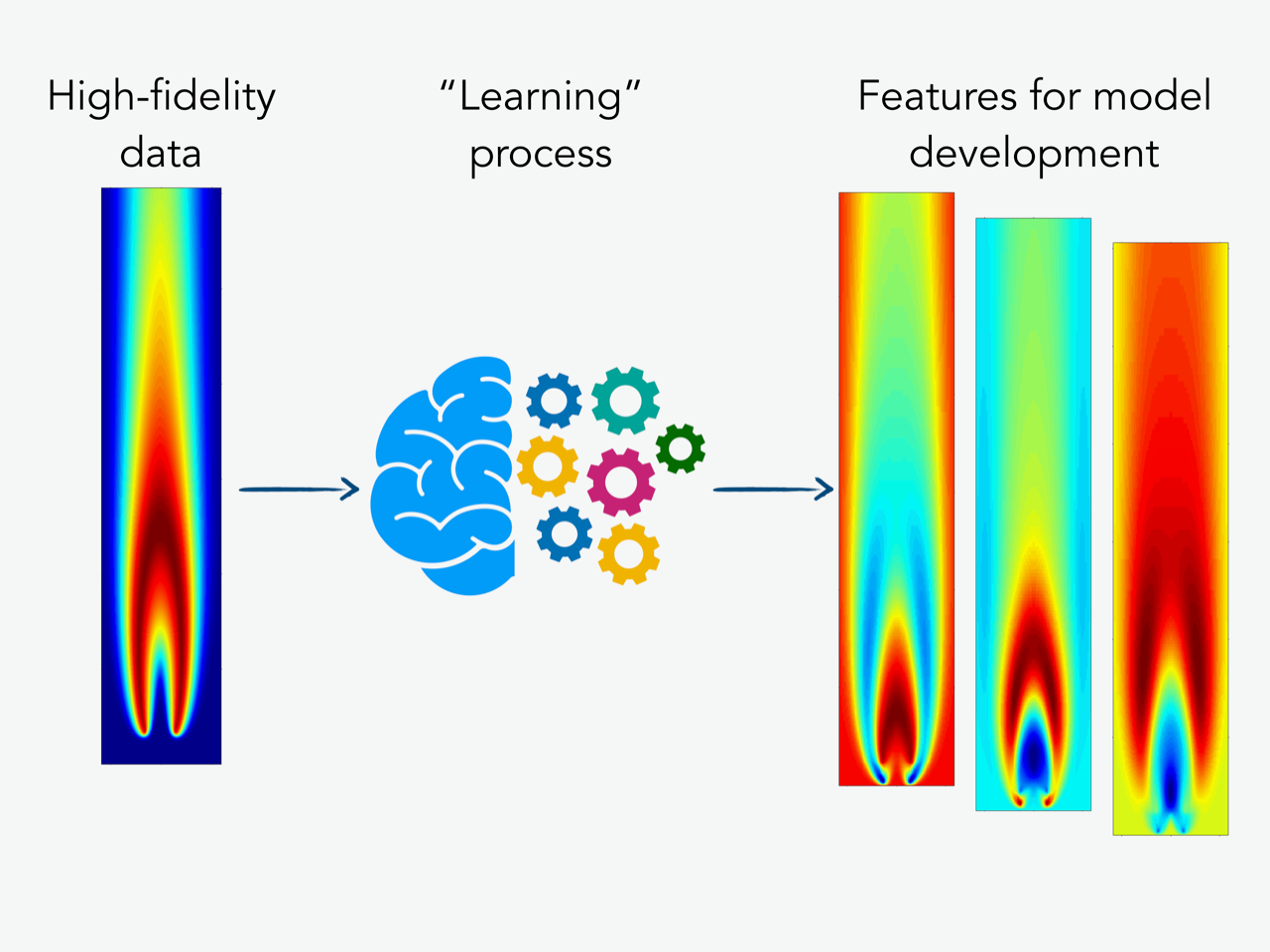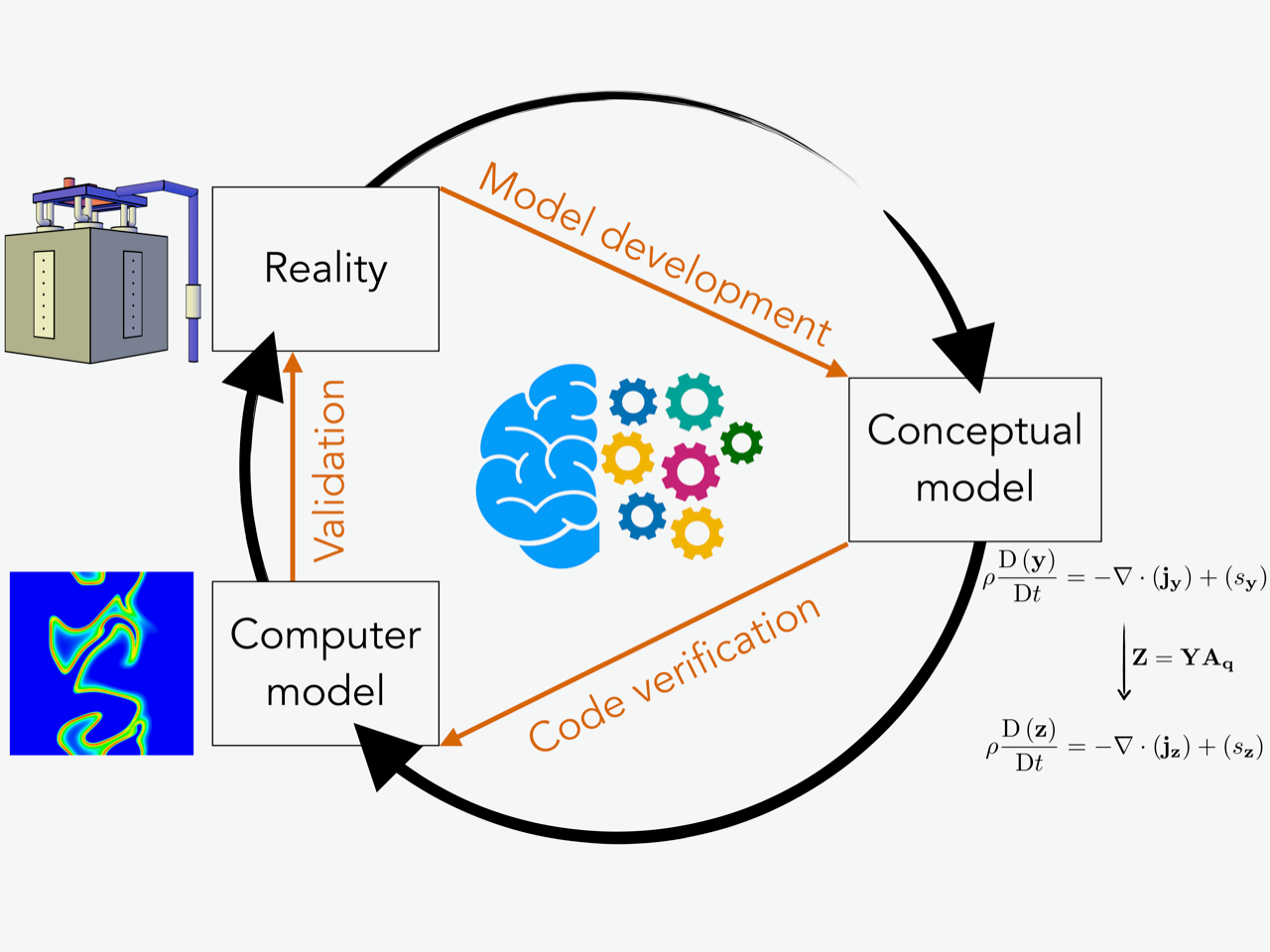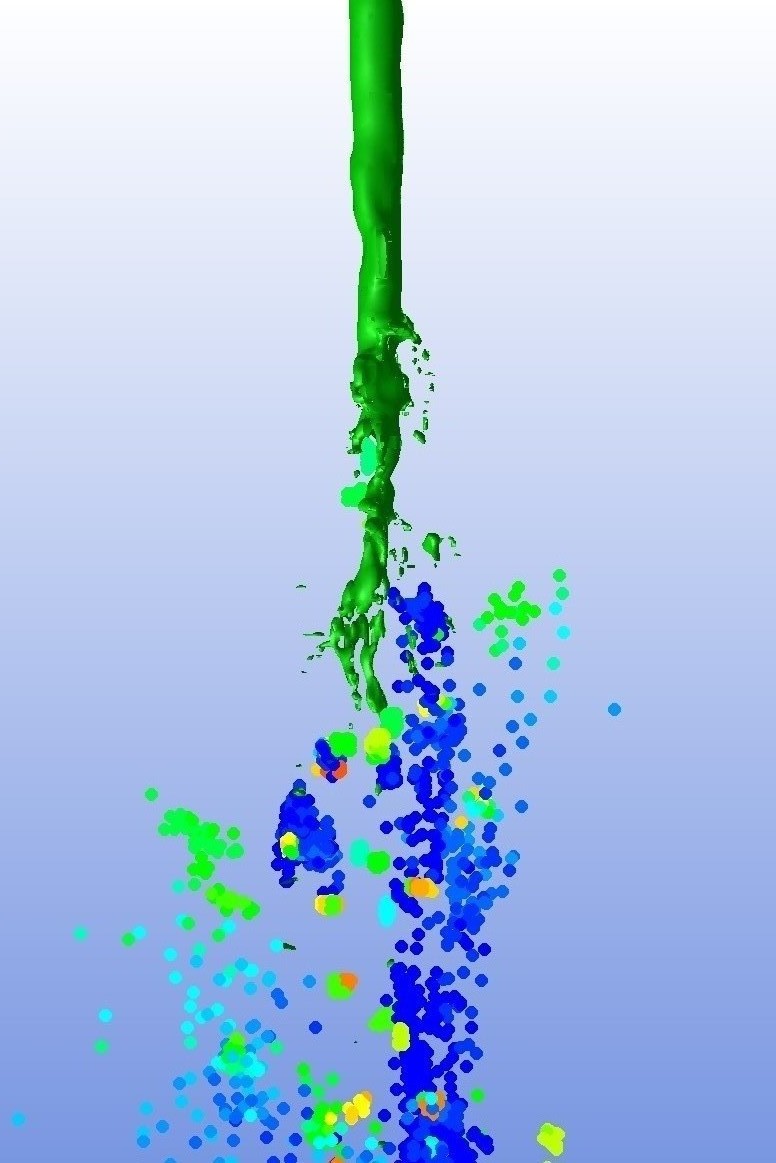ERCOFTAC Course:
Best Practice Guidelines for CFD of Turbulent Combustion including an introduction to machine learning tools for chemistry reduction and error estimation
11th - 12th December 2019
Université Libre de Bruxelles, Avenue Franklin Roosevelt 50, 1050 Bruxelles, Belgium
Hosted by Prof. Alessandro Parente




Background and objectives:
Design and operation of modern combustion systems (gas turbine engines, IC engines, process furnaces) faces the need to combine high efficiency with low pollutants emissions. Computational Fluid Dynamics has become a powerful tool in design of these systems. Many numerical models exist, each having a range of applicability, computational cost and accuracy. Consequently, CFD experts involved in combustor simulations, in addition to usual CFD skills, need specific insight and knowledge in combustion, heat transfer and emission modelling in order to conduct thorough analysis.
They must be able to respond to societal demands (e.g. larger role for hydrogen as fuel) or opportunities from other fields (data science, machine learning). The present course addresses this need. The participants will learn the best practices in CFD of combustion systems. They will discover how to select models, how to validate numerical simulations, and which accuracy to expect.
After the introduction to turbulent combustion modelling fundamentals, the course will focus on latest trends in the use of machine-learning based approaches to improve the understanding of turbulent reacting flow and develop more efficient and accurate numerical models. The lectures of this course, all by well-known experts in the field, cover from basics to applications.
The course is partially based on the ERCOFTAC Best Practice Guide on CFD of Turbulent Combustion a copy of which will be provided to the participants. In the course also the link will be made with the CFD programs and cases of interest for the participants.
As a result, the course provides the means for CFD analysts to significantly enhance their use of commercial and open-source CFD software for combustion engineering applications.
Lecturers:
- Prof. Alberto Cuoci, Politecnico di Milano
- Prof. Alessandro Parente, Université Libre de Bruxelles (host)
- Prof. Heinz Pitsch, RWTH Aachen
- Prof. Dirk Roekaerts, Delft University of Technology
Prof. Luc Vervisch, National Institute of Applied Sciences, Rouen Normandy University
Participation fee:
ERCOFTAC Members: €400
ERCOFTAC Members (PhD students): €300
Non-members: €900
Please note that fees do not include accommodation
The following cancellation charges apply:
90 days prior event - 30% of the fee per person;
60 days prior event - 50% of the fee per person;
30 days or less prior event - full fee per person.

REGISTRATION AND PAYMENT is now available on the course webpage, please see above
or via email to: admin@cado-ercoftac.org
DEADLINE FOR REGISTRATION: 1st December 2019
PROGRAMME:
Wednesday, December 11, 2019
Day 1: Best practices guidelines for CFD of turbulent combustion & introduction to data-driven approaches
8:30 Registration and welcome
9:00 Basis of turbulent combustion modeling - Luc Vervisch
10:00 Modeling pollutant emissions and NOx reduction - Luc Vervisch
10:30 Refreshments
11:00 Validation of CFD models for conventional and MILD combustion - Dirk Roekaerts
12:00 Discussion
12:30 Lunch
13:30 Validation of CFD models for turbulent combustion of sprays - Dirk Roekaerts
14:30 Introduction to use of machine learning in combustion - Alessandro Parente
15:30 Refreshments
16:00 Examples of feature extraction, regression and model reduction for combustion applications - Alessandro Parente
17:00 Final discussion
17:30 Close
Evening: course dinner
Thursday, December 12, 2019
Day 2: CFD for physics-informed, data-driven models in combustion
8:30 Registration and welcome
9:00 Machine-learning based techniques for error estimation in combustion modelling - Heinz Pitsch
10:00 Improving the fidelity of turbulent combustion simulations using machine learning - Heinz Pitsch
11:00 Refreshments
11:30 Chemistry reduction in combustion simulations using unsupervised classification and mechanism reduction I -
Alberto Cuoci
12:30 Lunch
13:30 Chemistry reduction in combustion simulations using unsupervised classification and mechanism reduction II -
Alberto Cuoci
14:30 Mini workshop on combustion CFD applications: Participants and lecturers are invited to give a short
presentation on a combustion CFD application using the CFD tools of their interest, with emphasis on challenging
issues. The discussion will focus on which best practices can be identified for the presented cases - Alessandro
Parente
16:00 Final conclusions and closure
Programme and course description also available below:
ercoftac-bpg-combustion-course-programme.pdf
ercoftac-bpg-combustion-course-description.pdf
